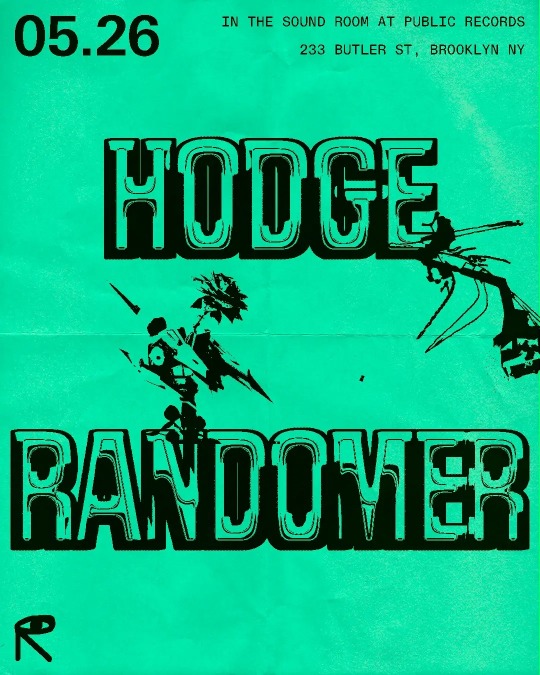#Omar S
Video
youtube
Omar-S - Hear Me Out (Featuring John FM)
5 notes
·
View notes
Text
Song of all time
9 notes
·
View notes
Text
Listed: James and the Giants

James and the Giants is the latest project from James Jackson Toth, who got his start in the freakiest edges of aughts folk as Wooden Wand, releasing a slew of albums under that and his own name. More recently, Toth has convened another band, James and the Giants, which shares personnel with Woods (Jarvis Tavernier, Kyle Forester and Jeremy Earl). In her review of their self-titled debut, Jennifer Kelly wrote, “Who’d have guessed from James Jackson Toth’s early forays into noisy, freak folk experiments that he’d shape up as such an elegant craftsman? This latest collection of songs attests to the artist formerly known as Wooden Wand’s deep connection to and understanding of foundational American popular music forms: blues, folk, gospel, R&B, Beatles-esque psych and Brill Building pop.”
Below is some music I really love. I have omitted music created by friends and people with whom I am acquainted in “real life.”
Oiro Pena
youtube
Studio overdubs are a bit of a rarity in jazz music; even less common is jazz created by a single musician overdubbing themselves. While recent Oiro Pena albums have expanded to include several other members, band founder Antti Vauhkonen’s earliest work under the name was created by Vauhkonen alone accompanying himself performing all of the instruments. The result is like a cross between the space exotica of Sun Ra’s Chicago period and the homespun psychedelic clatter of No Neck Blues Band. As much as I enjoy the band’s recent work, it is the early Oiro Pena records that I find most compelling, the composite parts of a single brain improvising with itself to create a beautiful illusion.
B-52s — “Ain’t It A Shame”
youtube
The B-52s’ 1986 album Bouncing Off The Satellites is what is often referred to in rock crit speak as a “transitional record.” It preceded a 3-year hiatus, after which the B-52s enjoyed a tremendously successful comeback with 1989’s 4x platinum Cosmic Thing, thanks in no small part to chart-topping singles “Love Shack” and “Roam.” Bouncing Off The Satellites found the increasingly fractious band moving away from their taut, artsy new wave origins and embracing the potential of nascent studio technology, namely the Fairlight CMI. Most crucially, the album was released less than a year after the AIDS-related death of founding member and guitar player Ricky Wilson, who was silently and secretly struggling with the virus during the recording of the album. As a result, the band did not promote nor tour in support of the album, which is really too bad, because it’s a great group of songs, the highlight of which being the melancholy “Ain’t It A Shame” (later covered by Sinead O’Connor). The song does not deal directly with Ricky’s illness—it was written before the diagnosis was revealed to anyone in the band—but seems to foreshadow some of the band’s personal difficulties in that prophetic way that songs often do. A gorgeous, flawless song.
Eyvind Kang — “Binah”
youtube
Tucked inconspicuously into the center of polymath / genius Eyvind Kang’s 2002 CD-only release, Live Low To The Earth, In The Iron Age, is this mesmeric masterpiece, somewhere between a post-rock Bill Frisell and a more pastoral Henry Flynt. Over 27 minutes, “Binah” slowly blossoms, changing almost imperceptibly. To an impatient listener, it will be like watching paint dry; to me it’s like watching a flower bloom. My wife Leah and I have listened to this album on a loop for hours, and I’m not typically a “listen to a song on a loop for hours” kinda guy.
Omar S
youtube
For over two decades, fiercely independent producer Omar S has been upholding the tradition of Detroit techno, his best music fusing the black sonic fantasias of Drexciya with the supple house-funk of Theo Parrish. On his own records and on his own label, FXHE, on which the vast majority of his 12”s and albums are released, the former Ford Motor Factory employee works exclusively with analog gear. Omar’s releases on FXHE are pressed in small quantities, often with crude, handwritten labels; if you order direct from FXHE, it’s very likely the box you receive will have been assembled and shipped by the man himself. While using techno and Chicago house as its base, the music Omar S produces is eclectic and unpredictable, untethered to any signature sound or approach; he’s just as likely to release an irresistible summer jam (see the Diana Ross-sampling “Day,” a track so infectious it makes Daft Punk sound like The New Blockaders) as darked-edged minimal house tracks like “Nite’s Over Compton,” on which Omar S masterfully evokes a mood using the barest essentials and tools.
Frank Zappa — “Chunga Basement”
youtube
I’ve given up trying to convert friends to the cult of Frank Zappa. I’m a big fan, especially of his guitar playing, but I sympathize with those who might have an aversion to Zappa’s prurient and mean-spirited sense of humor. In fact, if Frank Zappa’s particular sense of humor could be said to have an exact diametric opposite, it is my own. I love Zappa’s music in spite of — not because of — its scatological / puerile aspects. With that preamble in mind, I encourage all you private press-obsessed guitar loners to consider this embryonic, uncharacteristically laid-back version of future live staple “Chunga’s Revenge,” recorded during a casual jam session in early 1970 and featuring a rhythm section of Ian Underwood on keys, Max Bennett on bass, and Aynsley Dunbar on drums. “Chunga’s Revenge” was historically one of several signature vehicles for Zappa the Guitarist (as opposed to Zappa the Social Theorist, Zappa the Comedian-Provocateur, Zappa the Serious Composer, et al) and this early take finds our mustachioed man sounding uncharacteristically mellow and un-caffeinated, exploring the endless possibilities of his guitar in a way that isn’t remotely wacky or wanky.
Barre Phillips — Three Day Moon
youtube
There was a brief period in the mid-to-late 1970s when artists on ECM — my all-time favorite label after Three Lobed — were experimenting with synthesizers, approaching this relatively new technology with an omnivorous artistic fervor common to the ECM roster. Legendary bassist Barre Phillips’ pair of albums in the late 1970s are, to me, the distillation of this meeting of the earthy and the synthetic, locating in the process what might be considered ground zero for “ambient jazz.” While jazz groups incorporating elements of ambient and drone have become increasingly common as of late, there was little precedent in 1976 for the experimental marriage of saxes and circuitry. Mountainscapes (1976) and Three Day Moon (1978) both feature the mysterious and under-recorded synthesist Dieter Feichtner, about whom little is known — anyone know what became of him?
The Knife — Silent Shout
youtube
In 2006, I was in an electronic music rut. Everything being produced suddenly felt like a retread or a facsimile of things I already liked, a malady common to older, more established genres like rock and jazz, but not, as far as I was concerned, electronic music. My slump ended upon hearing Silent Shout, the third album by Swedish sibling duo The Knife. Though I avidly continue to keep up with the uniformly excellent solo projects of both members of The Knife — Karin Dreijer Andersson’s Fever Ray and Olof Dreijer’s Oni Ayhun — Silent Shout remains a pivotal record in my listening life. The album’s gothic austerity and phantasmal reimagining of dance music is clearly the work of visionary minds. Silent Shout is music of physicality, of intimacy and bodies, rendered icy and alien in part by the deployment of pitch-shifted vocals that suggest multiple menacing personas, giving the album the dissociative sense of having many different vocalists embodying different characters. Dreijer Andersson’s voice is an incredible instrument, capable of evoking dread, fear, loneliness, and antagonism. Incredible artist.
Ulver — Blood Inside
youtube
Ulver is predictable only in its unpredictability. The band radically reinvents its sound from album to album in a way that makes the Norwegian group’s music impossible to pigeonhole (see also: Boris, Circle). The group’s early albums are exciting, if fairly traditional black metal. But since then, Ulver has experimented with symphonic neo-classical, synth pop, art rock, trip hop, and folk music. 2005’s Blood Inside is their masterpiece — one of the most engrossing, relentless and overwhelming albums I’ve ever heard. Sometimes the album sounds like King Crimson covering The Cure’s Pornography, sometimes it sounds like Swans trying to evacuate a city being blasted by bombs. A grower if ever there was one, Blood Inside will worm its way into your psyche with its manic, brute ferocity and decadent maximalism. I’m loath to resort to the cliché of comparing a piece of music to an acid trip, so let’s instead call Blood Inside the sonic equivalent of an anxiety attack — inside a kaleidoscope.
Tolerance — Divin
youtube
The late music journalist Yuzuru Agi founded the Osaka-based Vanity label in 1978, releasing 11 LPs alongside a handful of 7” singles, flexis, compilations, and cassettes by mostly Japanese artists before dissolving the label in 1982. My favorite Vanity release is 1981’s Divin, the second album by the Osaka duo Tolerance. Led by the enigmatic and mysterious Junko Tange and aided by guitarist Masami Yoshikawa, Tolerance used drum machines and mixers alongside guitars and keyboards to create a different sort of early electronic music, one that was as far away from Kraftwerk and Tangerine Dream as Captain Beefheart was from the Rolling Stones. As the album’s most enthusiastic boosters love to acknowledge, listening to Divin is like listening to the future: the mechanized cracked electronics of Wolf Eyes and Nautical Almanac can be heard here, no wave’s dissonant skronk and grave incantations, and certainly what is now referred to as “minimal wave.” But the record’s prescience as a precursor to techno may be a tad overstated; by 1981, we already had “Being Boiled,” Louis and Bebe Barron’s soundtrack for Forbidden Planet, and Throbbing Gristle’s “Hot On The Heels On Love” (the latter of which does sound like a clear precursor to Tolerance’s “Sacrifice”), to name a few. Whether or not the members of Tolerance were aware of any of these things is impossible to know, as no one has seen or heard from either band member since shortly after Divin’s release. I’d speculate that most if not all of these resemblances are purely coincidental and not an indication of any direct influence. The coincidences, however, are fascinating. “Misa (Gig’s Tapes in ‘C’), presented here backwards, sounds a bit like a dry run for My Bloody Valentine’s “Touched;” “Sound Round” could quite easily pass as a sixth-generation cassette dub of some lost Skam or Rephlex 12,” while “Bok Wa Zurui Robot (Stolen from Kad)” does indeed sound like a blueprint for Detroit techno. There is something beguiling and uncanny about the entire presentation of Tolerance in general and Divin in particular. Though it is unlikely that the future architects of electronic music as we know it were aware of this record upon its limited release in 1981, it is a testimony to the notion of collective unconscious that Divin unwittingly presages so much of what was to come while still sounding like nothing else.
#dusted magazine#listed#james and the giants#James Jackson Toth#Oiro Pena#B-52s#Eyvind Kang#Omar S#frank zappa#Barre Phillips#the knife#ulver#tolerance#Youtube
2 notes
·
View notes
Text
Omar S & Desire - "Hard Times (Omar S Mix)"
Hard Times [FXHE, 2023]
4 notes
·
View notes
Text
2 notes
·
View notes
Audio
2 notes
·
View notes
Video
youtube
Omar S Presents Colonel Abrams - Who Wrote The Rules Of Love (Shadow Ray-Remix)
1 note
·
View note
Audio
✰Bourgeoiz Music Discovery✰
#music discovery#music#spotify link#spotify#genres#alternative r&b#alternative rnb#art pop#escape room#experimental r&b#experimental rnb#indie soul#music genres#music artists#kelsey lu#omar s#song#poor fake#remix#Poor Fake - Omar S Remix#Bourgeoiz Music Discovery#MORE MUSIC ON MY BLOG
4 notes
·
View notes
Video
youtube
Omar S - Can't Get (Sub Mix)
5 notes
·
View notes
Text

Omar Ziyadeh, “Nobody Can Identify Their Own Remains, and I Am Unable to Identify My Own” (tr. from Arabic by Alice S. Yousef) [ID’d]
#omar ziyadeh#alice s. yousef#nobody can identify their own remains and i am unable to identify my own#words#poetry#typography#palestinian literature
8K notes
·
View notes
Text

Thank me later ✨🍾🥂 ~on repeat~
youtube
1 note
·
View note
Text
Event Flyer Roll Call
A selected visual gallery listing of forthcoming events, which may be announced on this month’s show































#tony humphries#le bain#kiss fm 98.7#driven am#thomas p heckmann#mike servito#basement ny#knockdown center#andi#italomatic#facets#aurora halal#nowadays#dennis ferrer#anthony rother#omar s#mean red#junior vasquez#janice robinson#oscar g#kai alce#dj pierre#eddie fowlkes#hector romero#detroit music festival#movement festival#francois k#the bunker#mark broom#silo
0 notes